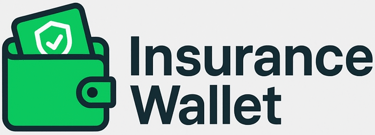Ethical Selling Practices for Motor Insurance Agents
In motor insurance, agents are the face of the company. Customers rely on their advice to select the right cover. That’s why ethical selling is not just about compliance—it’s about building trust, long-term relationships, and a positive brand image.
The IC-72 study text emphasizes that agents must strictly follow ethical selling practices and code of conduct to prevent mis-selling and ensure customer satisfaction.
🔎 What Do We Mean by Ethical Selling?
Ethical selling means offering insurance products that genuinely match the customer’s needs, with complete transparency about benefits, costs, exclusions, and processes.
👉 It’s not about pushing a policy—it’s about being a trusted advisor.
📜 Code of Conduct for Agents (As per IRDAI & IC-72)
Transparency in Operations
Disclose all terms, conditions, inclusions, and exclusions clearly.
Provide brochures/prospectus with complete product details.
Objective Information
Present facts without bias or personal gain.
Avoid hiding limitations or exaggerating benefits.
Customer Need Analysis
Recommend covers based on customer’s risk profile, not commission value.
For example, suggest a Comprehensive Policy with add-ons to a new car owner, not just Third-Party cover.
Prompt Service
Submit proposal forms and premium immediately.
Deliver policy copies on time.
Knowledge & Expertise
Be well-versed in product features, claim process, and add-ons.
Keep customers updated about premium changes, regulatory updates, or renewals.
Protect Against Moral Hazard
Provide accurate information about customer’s past losses, vehicle condition, and risk factors.
🚫 Unethical Selling Practices to Avoid
Misrepresenting product scope (“Sir, all damages will be covered” when exclusions apply).
Hiding deductibles, exclusions, or waiting periods.
Delaying policy issuance to hold money longer.
Pushing unnecessary add-ons or covers just to increase commission.
Not assisting customers during claims.
✅ Example: Ethical vs. Unethical Selling
Unethical Approach:
Agent sells only a Third-Party policy to a customer buying a new car, just to keep premium low and close the deal quickly. Later, the car is damaged in an accident and customer gets no OD coverage → customer loses trust.Ethical Approach:
Agent explains both Third-Party (mandatory) and Comprehensive (recommended) covers. He also suggests Zero Depreciation add-on for a new car. Customer pays more premium but gets full protection → customer becomes loyal and refers others.
💡 Benefits of Ethical Selling
For Customers: Right protection, fewer disputes, smoother claims.
For Agents: Stronger reputation, higher renewals, referrals, and long-term income.
For Industry: Higher trust in insurance, less mis-selling, stronger compliance.
🎯 Conclusion
Ethical selling is not just a rule—it’s a business strategy for success. Agents who prioritize honesty and customer needs build lasting trust and grow faster than those chasing quick sales.
👉 Pitch Line for Agents:
“Sell what’s right, not just what’s easy. Ethical selling today builds the loyal customer base of tomorrow.”
